My Dad uses 'walk' almost exclusively and I tend to associate walking and bushwalking with older folk
Are we hiking or bushwalk?
Forum rules
The place for bushwalking topics that are not location specific.
The place for bushwalking topics that are not location specific.
Re: Are we hiking or bushwalk?
Not that another opinion is really needed here but... I'd hike for day or two. Longer than that and I'd be trekking (I think this is a more euro term that I've picked up). Also tend to use 'trail' over 'track' since I started mountain biking - a sport which has definite roots in North America.
My Dad uses 'walk' almost exclusively and I tend to associate walking and bushwalking with older folk
My Dad uses 'walk' almost exclusively and I tend to associate walking and bushwalking with older folk
-

B3n - Nothofagus gunnii

- Posts: 15
- Joined: Tue 31 Mar, 2015 1:39 am
- ASSOCIATED ORGANISATIONS: Adventure Friends
- Region: Queensland
Re: Are we hiking or bushwalk?
B3n wrote:Not that another opinion is really needed here but... I'd hike for day or two. Longer than that and I'd be trekking (I think this is a more euro term that I've picked up). Also tend to use 'trail' over 'track' since I started mountain biking - a sport which has definite roots in North America.
I don't know the origins of 'trekking' but it was being used lots in South America (at least Chile, Peru, Bolivia) when I was there around 2007. It was the main English-language word that'd been picked up for use in most of the English tourism publications. It's interesting in some ways because I'd have thought there would be lots of North American influence in the tourism industry there, but maybe not enough to win out on the marketing language. I don't know what's popular there now.
I'm definitely a 'track' user more than a 'trail' user.
-

izogi - Atherosperma moschatum

- Posts: 66
- Joined: Fri 10 Sep, 2010 6:14 pm
- Region: New Zealand
- Gender: Male
Re: Are we hiking or bushwalk?
In our family, for over 70 years, the words "walking" and "bushwalking" were synonymous. Never hiking. Cheers!
Walking takes longer... Thus it stretches time and prolongs life. Life is already too short to waste on speed. ~ Edward Abbey
-

Jeffoir1 - Nothofagus gunnii

- Posts: 14
- Joined: Sun 26 Oct, 2014 4:09 pm
- Region: New South Wales
- Gender: Male
Re: Are we hiking or bushwalk?
Mmm.... I can relate to that ,hitch-hiking,yes,just hiking rarely,it was usually "going for a walk"...........Jeffoir1 wrote:In our family, for over 70 years, the words "walking" and "bushwalking" were synonymous. Never hiking. Cheers!
- vicrev
- Athrotaxis cupressoides

- Posts: 495
- Joined: Mon 18 Feb, 2013 4:27 pm
- Region: Victoria
- Gender: Male
Re: Are we hiking or bushwalk?
So, do we have an outcome yet and a proposal for a standard definition? From this day forward, all BWA members will need to adhere to defined usage or face a ban...
Just move it!
-
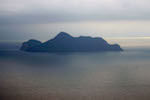
GPSGuided - Lagarostrobos franklinii

- Posts: 6801
- Joined: Mon 13 May, 2013 2:37 pm
- Location: Sydney
- Region: New South Wales
Re: Are we hiking or bushwalk?
GPSGuided wrote:So, do we have an outcome yet and a proposal for a standard definition? From this day forward, all BWA members will need to adhere to defined usage or face a ban...
Haha. I'll see if I can get an article added to the Bushwalking NSW website on it!
Tackling the unknown and the awesome one adventure at a time!
Check out my latest trips at http://aoacblog.wordpress.com/posts
Check out my latest trips at http://aoacblog.wordpress.com/posts
- Allchin09
- Phyllocladus aspleniifolius

- Posts: 704
- Joined: Fri 27 Apr, 2012 3:24 pm
- Location: The Shire
- ASSOCIATED ORGANISATIONS: Sydney Bush Walkers
- Region: New South Wales
- Gender: Male
- JohnStrider
- Athrotaxis cupressoides

- Posts: 380
- Joined: Fri 12 Dec, 2014 12:34 pm
- Location: Melbourne
- Region: Victoria
- Gender: Male
Re: Are we hiking or bushwalk?
JohnStrider wrote:Aren't they one and the same?
Originally, no; bushwalking and hiking were quite different things. These days however it is common for them to be used interchangeably.
Tackling the unknown and the awesome one adventure at a time!
Check out my latest trips at http://aoacblog.wordpress.com/posts
Check out my latest trips at http://aoacblog.wordpress.com/posts
- Allchin09
- Phyllocladus aspleniifolius

- Posts: 704
- Joined: Fri 27 Apr, 2012 3:24 pm
- Location: The Shire
- ASSOCIATED ORGANISATIONS: Sydney Bush Walkers
- Region: New South Wales
- Gender: Male
Re: Are we hiking or bushwalk?
Does it really matter ?......
- vicrev
- Athrotaxis cupressoides

- Posts: 495
- Joined: Mon 18 Feb, 2013 4:27 pm
- Region: Victoria
- Gender: Male
-

GPSGuided - Lagarostrobos franklinii

- Posts: 6801
- Joined: Mon 13 May, 2013 2:37 pm
- Location: Sydney
- Region: New South Wales
Re: Are we hiking or bushwalk?
Some days I spend a lot of time hiking my pants up while bushwalking. And some days I do a lot of walking trying to find the trail to get back on track
-

Picaro - Athrotaxis cupressoides

- Posts: 299
- Joined: Thu 25 Oct, 2012 5:35 am
- Location: Tamborine Mountain
- Region: Queensland
- Gender: Male
Re: Are we hiking or bushwalk?
CFPhillips wrote:Hi Mike,
Thanks for checking out our latest issue.
You can find an extended version of the story on our website (I posted the link in a previous comment, I think), which was released prior to the magazine becoming available. I began looking into this topic after undertaking some research via Google Trends. It was only after <i>Wild</i> had published this first online version of the story was this forum topic pointed out to me by a reader.
Feel free to contact me directly if you would like to see more of the Google search term data.
And then, of course, there is 'tramping' as our friends across the Tasman call it??? (Which seems to have caught on here in Oz as well: see The Tasmanian Tramp - another excellent magazine!
- Nungulba
- Atherosperma moschatum

- Posts: 75
- Joined: Sun 14 Oct, 2012 8:14 pm
- Region: New South Wales
- Gender: Male
Re: Are we hiking or bushwalk?
I think I will be going against the grain a bit here. I use both terms, but if someone tells me they're going for a 'bushwalk' I have a picture in my mind of a day trip, nothing more. A 'hike' on the other hand I would assume to be multi-day, carrying tents, etc.
I will also echo a point made above, which is that 'hiking' may be a more versatile term. If I was going on a coastal walk - i.e. mainly beach/sand walking - I don't think I'd feel comfortable calling it a bushwalk.
I will also echo a point made above, which is that 'hiking' may be a more versatile term. If I was going on a coastal walk - i.e. mainly beach/sand walking - I don't think I'd feel comfortable calling it a bushwalk.
- JulianS
- Atherosperma moschatum

- Posts: 50
- Joined: Tue 13 Aug, 2013 9:15 pm
- Region: Victoria
- Gender: Male
Re: Are we hiking or bushwalk?
I know of many bushwalking clubs, but offhand can't think of any hiking ones. In the 1930's there was a Hikers' Club of Sydney, but after a few years it changed its name to the Rucksack Club when it found that the other walking clubs would not take its credentials seriously. They resented the term "hiking" for its commercialised overtones associated with the "hiking craze" of the early 30's, which they considered to be a belittling of their more serious pursuit. Not so long ago there were still enough of the old brigade around to chide people like me whenever we said the word "hiking" instead of "bushwalking". "Bushwalking" is a home grown term endemic to Australia, whereas "hiking" I understand is an Americanisation now co opted locally by marketers who would like to apply a universal standard. Even this forum is supposed to be a bushwalking forum, yet scroll down the pages and count how many times you see headings like "multi day hikes", "Hiking paradox", "Hiking Movie", "knives on hikes", "Missing Hikers" etc etc etc. It seems at this rate we might be headed for another "hiking craze".
- juxtaposer
- Athrotaxis cupressoides

- Posts: 197
- Joined: Thu 27 Jan, 2011 4:20 pm
- Region: New South Wales
Re: Are we hiking or bushwalk?
When I was younger  ...there were two terms associated with hiking....to'' hike , meant walking wherever....to'' hitch hike'' meant sticking your thumb out to get a lift from passing cars,the term hike has been in this country for a long time....
...there were two terms associated with hiking....to'' hike , meant walking wherever....to'' hitch hike'' meant sticking your thumb out to get a lift from passing cars,the term hike has been in this country for a long time.... 
- vicrev
- Athrotaxis cupressoides

- Posts: 495
- Joined: Mon 18 Feb, 2013 4:27 pm
- Region: Victoria
- Gender: Male
Re: Are we hiking or bushwalk?
I'm not sure I use either term. Normally I just ask my hiking partner if he wants to go bush.
Sometimes, I use big words I don't always fully understand in an effort to make myself sound more photosynthesis.
-

MickyB - Auctorita modica

- Posts: 1403
- Joined: Thu 28 Jun, 2012 7:50 pm
- Region: Victoria
- Gender: Male
Re: Are we hiking or bushwalk?
I'm not sure it really matters what word you use. It's the same activity. Personally, I have adopted the term hiking purely because of two reasons, a) when I first became interested it was the first term I could think of and search results were plentiful, and b) it's easier to say.
-
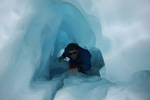
whitefang - Athrotaxis cupressoides

- Posts: 370
- Joined: Wed 09 Apr, 2014 11:36 am
- Location: Adelaide Hills
- Region: South Australia
- Gender: Male
Re: Are we hiking or bushwalk?
juxtaposer wrote:Not so long ago there were still enough of the old brigade around to chide people like me whenever we said the word "hiking" instead of "bushwalking". "Bushwalking" is a home grown term endemic to Australia, whereas "hiking" I understand is an Americanisation now co opted locally by marketers who would like to apply a universal standard.
I'm not sure if or how it fits in Australia, but in the New Zealand context (where the local dialect tends to use 'tramping' rather than 'bushwalking') there was a recent letters-to-the-editor exchange in the August 2015 Federated Mountain Clubs bulletin. FMC nationally represents and lobbies on behalf of the majority of tramping and other outdoor recreation clubs, and some other users, around the country.
Letter 1: "I object to the American word, 'hikes' instead of 'tramps'. Please object, every time that word is used."
Letter 2: "I agree with the sentiments expressed. It also relates to 'trails' and a whole host of other Americanisms, which some New Zealanders feel compelled to mimic for pathetic cultural cringe reasons. This is partly tied up with marketing; by using these terms some advertisers think they will sell more."
Editor's response:
Use of the words 'hiking' and 'trails', may be seen as creeping Americanisms in our language, but actually both terms have a far longer history of use here than most people acknowledge. Some early tramping clubs in New Zealand called themselves 'hiking clubs'; for example there was an 'Auckland YMCA Hiking Club' formed in 1918. A search on the Papers Past website shows use of these terms, in the concept of walking, by New Zealand newspapers dating back to the 1930s and earlier. For example, a photograph appeared in the Auckland Star, 22 March 1932, showing members of the Alpine Sports Club descending a gorge in the Waitakeres with the caption heading 'Hiking in Earnest, Tramping in the week-end is not always easy'.
Furthermore, the American influence on how we manage outdoor recreation has been of far greater importance than anything from England. For example, the idea of a national park is an American concept, one that we adopted very early on (the UK didn't create their first national park until the 1950s). Should we avoid use of the term 'national park' because it is an Americanism? The idea of hte long distance hiking trail is also largely an American idea, so using the term Te Araroa 'Trail' in New Zealand seems entirely appropriate to me.
To anyone who bemoans creeping Americanisms in New Zealand English, can I suggest reading Bill Bryson's Mother Tongue? Bryson points out that the way the Americans pronounce and spell English is closer to how the British did it in the 1600s (when the first British settlers arrived in America), so in fact it's British English that has changed more.
While the FMC Bulletin will continue to use the words 'tramping' and 'tracks' in most situations, sometimes 'hiking' and 'trails' will be used---for the above reasons by also for the simple expedient of maintaining diversity in the language we offer readers.
-

izogi - Atherosperma moschatum

- Posts: 66
- Joined: Fri 10 Sep, 2010 6:14 pm
- Region: New Zealand
- Gender: Male
Re: Are we hiking or bushwalk?
I haven't read every post but, recently coming back into what I once called bush walking I now seem to just refer as, going for a walk.
However as I'm looking at purchasing some stuff all of the Australian sites now refer to everything as hiking gear.
However as I'm looking at purchasing some stuff all of the Australian sites now refer to everything as hiking gear.
- muffin man
- Nothofagus gunnii

- Posts: 16
- Joined: Fri 28 Aug, 2015 1:36 pm
- Region: South Australia
Re: Are we hiking or bushwalk?
I also tend to just say going for a walk. I sometimes need to explain this to non-bushwalkers, as in "why are you going all the way to Tasmania (or wherever it is) for a walk?."
"Wilderness is not a luxury but a necessity of the human spirit"
-
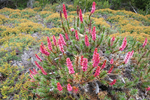
Hermione - Athrotaxis cupressoides

- Posts: 221
- Joined: Wed 27 Mar, 2013 3:50 pm
- Region: Tasmania
- Gender: Female
Re: Are we hiking or bushwalk?
Tassie is a great place to come to for a Stroll on some of our
tracks in the bush with a few other blokes and shielas.
No need for cultural cringe, eh.
Flyfisher
tracks in the bush with a few other blokes and shielas.
No need for cultural cringe, eh.
Flyfisher
If you don't know what I'm talking about, then you need to drink more.
-

flyfisher - Athrotaxis selaginoides

- Posts: 1528
- Joined: Sat 14 Jul, 2007 8:39 pm
- Location: hobart
- ASSOCIATED ORGANISATIONS: landrover owners club of tasmania
- Region: Tasmania
- muffin man
- Nothofagus gunnii

- Posts: 16
- Joined: Fri 28 Aug, 2015 1:36 pm
- Region: South Australia
Re: Are we hiking or bushwalk?
A small matter, but one of considerable significance arose a few weeks ago when the Hikers' Club of Sydney changed its name to the Rucksack Club, unknowingly choosing the same name as the leading English rock-climbing Society. The reason for the change is obvious. The term "Hiking" has not met with favour in Sydney, despite the fact that its origin is Anglo-Saxon, not American, and that its use has been blessed by the great Lord Baden Powell and the Scout Movement generally. "Bushwalking " is the term that Sydney prefers, or, to be more precise, has invented and added to its dictionary. The efficient recreational walker who knows how to camp as well as walk is, with us, a "bushwalker", not a "hiker." It is hikers who go out and get lost; it is bushwalkers who rescue them. It is hikers who leave their fires alight, often causing bush fires, or despoil the landscape by leaving papers, tins and orange peel about; it is bushwalkers who put out fires and clear away litter. In short, the hiker is, in Sydney's opinion, the muddling inefficient; the bushwalker, the expert. Thus it is that the Hikers' Club of Sydney, which took its name thinking it was following the best traditions, has seen fit to eliminate the word which has fallen into disfavour and to adopt something else. It is also significant that "Paddy" Pallin who used to sell "hiking" gear, now sells only "camp gear for walkers"!
Marie Byles, "The Sydney Bushwalker", No. 32, January 1937.
Marie Byles, "The Sydney Bushwalker", No. 32, January 1937.
- juxtaposer
- Athrotaxis cupressoides

- Posts: 197
- Joined: Thu 27 Jan, 2011 4:20 pm
- Region: New South Wales
Re: Are we hiking or bushwalk?
juxtaposer wrote:It is hikers who go out and get lost; it is bushwalkers who rescue them.
I really liked this bit
Sent from my SM-N9005 using Tapatalk
-
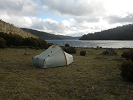
Strider - Lagarostrobos franklinii

- Posts: 5875
- Joined: Mon 07 Nov, 2011 6:55 pm
- Location: Point Cook
- Region: Victoria
- Gender: Male
Re: Are we hiking or bushwalk?
juxtaposer wrote:It is hikers who go out and get lost; it is bushwalkers who rescue them.
I might adopt that as a signature. It's beautiful.
"Mit der Dummheit kämpfen Götter selbst vergebens."
-

north-north-west - Lagarostrobos franklinii

- Posts: 15411
- Joined: Thu 14 May, 2009 7:36 pm
- Location: The Asylum
- ASSOCIATED ORGANISATIONS: Social Misfits Anonymous
- Region: Tasmania
Re: Are we hiking or bushwalk?
juxtaposer wrote:It is hikers who go out and get lost; it is bushwalkers who rescue them. It is hikers who leave their fires alight, often causing bush fires, or despoil the landscape by leaving papers, tins and orange peel about; it is bushwalkers who put out fires and clear away litter. In short, the hiker is, in Sydney's opinion, the muddling inefficient; the bushwalker, the expert.
Marie Byles, "The Sydney Bushwalker", No. 32, January 1937.
Love it, so prescient. These words are 78 years old!
-
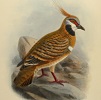
Lophophaps - Auctorita modica

- Posts: 3467
- Joined: Wed 09 Nov, 2011 9:45 am
- Region: Victoria
- Gender: Male
Re: Are we hiking or bushwalk?
I'll just leave this here 

Edit: subscribing

Edit: subscribing
-

neil_fahey - Athrotaxis cupressoides

- Posts: 215
- Joined: Mon 14 Dec, 2009 12:30 pm
- Location: Melbourne, Victoria
- ASSOCIATED ORGANISATIONS: BushwalkingBlog.com.au
- Region: Victoria
- Gender: Male
Re: Are we hiking or bushwalk?
A day walk I'd call bushwalking (just a walk, as the word says),
A weekender is hiking (a fair hike),
A larger trek is trekking....
Blame my European origin, it seems to categorise nicely....
And I go on tracks, not trails.... That's for the US....
A weekender is hiking (a fair hike),
A larger trek is trekking....
Blame my European origin, it seems to categorise nicely....
And I go on tracks, not trails.... That's for the US....
-

Dutchy - Athrotaxis cupressoides

- Posts: 163
- Joined: Thu 25 Sep, 2008 3:58 pm
- Location: Melbourne
Re: Are we hiking or bushwalk?
I bushwalk on a track, not hike on a trail but I go trail running on a track. 
-

Rick - Atherosperma moschatum

- Posts: 99
- Joined: Fri 09 Jan, 2009 1:55 pm
- Region: Tasmania
Re: Are we hiking or bushwalk?
JulianS wrote:I think I will be going against the grain a bit here. I use both terms, but if someone tells me they're going for a 'bushwalk' I have a picture in my mind of a day trip, nothing more. A 'hike' on the other hand I would assume to be multi-day, carrying tents, etc.
I will also echo a point made above, which is that 'hiking' may be a more versatile term. If I was going on a coastal walk - i.e. mainly beach/sand walking - I don't think I'd feel comfortable calling it a bushwalk.
Exactly what I was goin to say.
I associate bushwalking with day trips and hiking with overnighters.
Don't know why, thats just the way my brain works.
Doesn't matter what you call it though, as long as your'e out enjoying our beautiful country, life is good.
- racca
- Atherosperma moschatum

- Posts: 80
- Joined: Sun 11 Oct, 2015 2:30 pm
- Location: Brisbane
- Region: Queensland
- Gender: Male
Return to Bushwalking Discussion
Who is online
Users browsing this forum: No registered users and 8 guests
